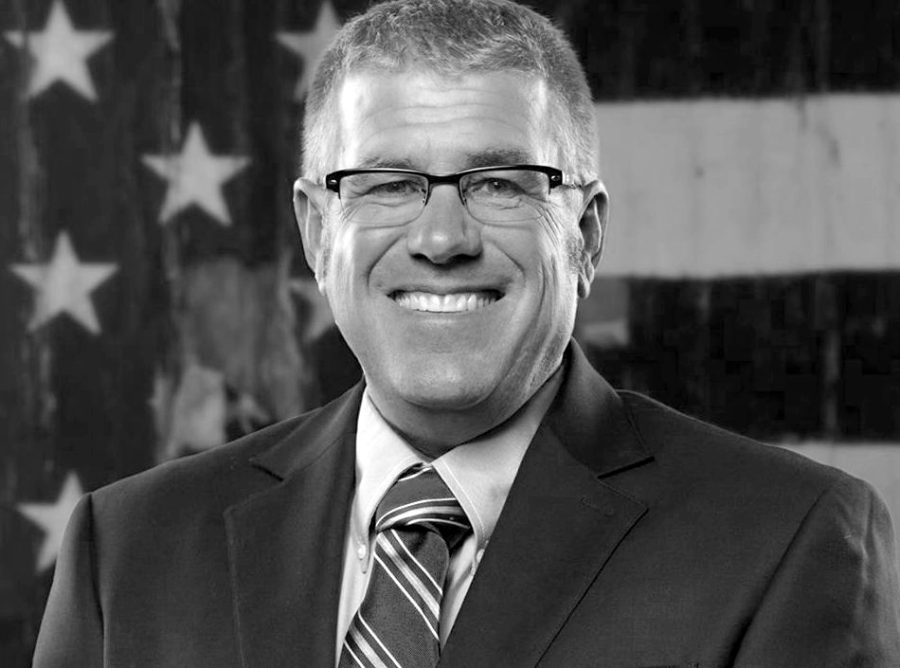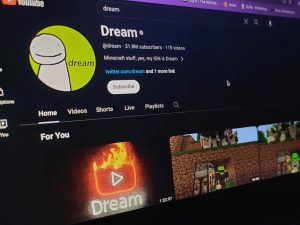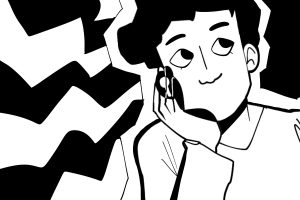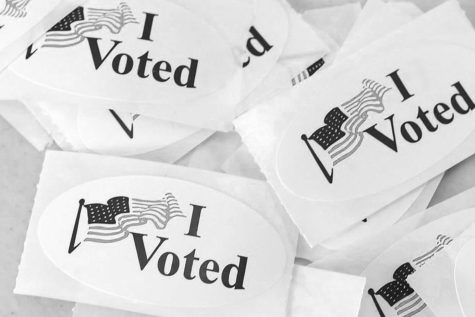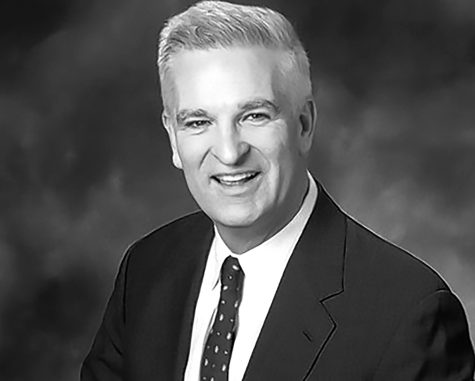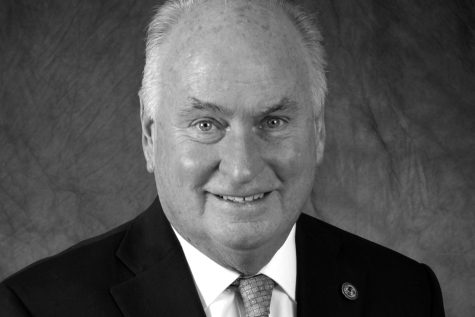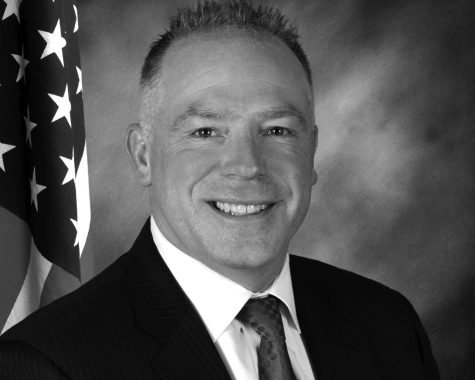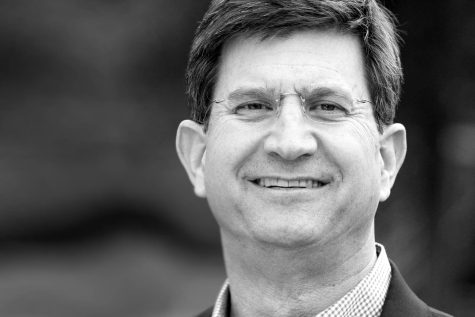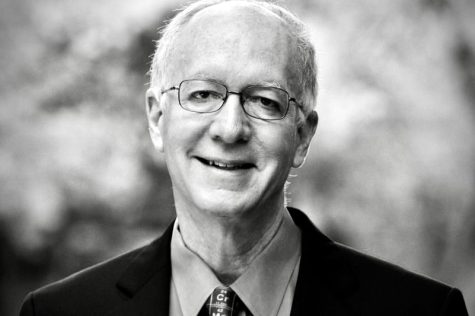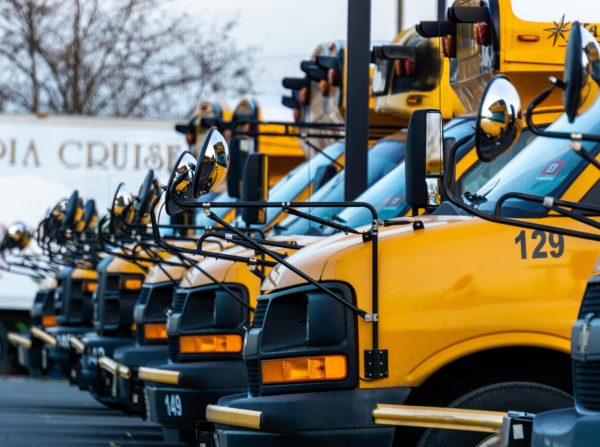Meet Darren Bailey, the Republication candidate for Illinois governor
Darren Bailey, Republication candidate for governor and state senator for Illinois’s 55th district, talks about education, faith and personal freedom ahead of the Nov. 8 election
Bailey for Illinois
Darren Bailey, who is running as a Republican against JB Pritzker to be Illinois’s Governor, has been a state senator since 2019.
October 21, 2022
Darren Bailey is the Republican candidate running for governor of Illinois and a state senator for the 55th District. Bailey is now running against current Illinois Gov. JB Pritzker for the position in the Illinois midterm elections on Nov. 8.
Pritzker declined our request for an interview.
What has been your greatest accomplishment as a politician so far?
Well, probably getting the word out to people to get involved in government. Many times elected people get elected and they think they just need to write more laws, and I think we have too many laws the way it is. Most of the time when new laws are written, we already have something that really accomplishes the purpose, we just don’t know about it.
Getting people involved in this constitutional form of government is probably the thing that I take the most pride in and letting people know that a government of the people by the people and for the people can only exist and thrive if the people get involved.
So, that’s really getting a grassroots movement, getting the people out to vote, to get engaged with their elected officials, and even run for office themselves. That’s what I enjoy.
With everything going on in the world, including COVID, what would you have done differently than the current Illinois Gov. JB Pritzker?
Well, I would have never shut things down. I believe that we as a society are smart. We’re free people. We have a free economy, and we did a lot of damage to schools. We did a lot of things to children when they lost two years of education. And we did a lot of damage when we, you know, told people they needed to stay inside.
I believe that I would have educated, I would have informed [the people of Illinois]. I would have made sure that people had access to the vaccines or whatever they needed help with.
But, at the end of the day, I would have left the choice up to people, businesses, schools and churches in whether or not they felt they needed to require masking or close.
At the very minimum, the governor has 30 days by Illinois law to issue an emergency proclamation and then after that the General Assembly is supposed to get involved, and Governor Pritzker didn’t allow that. And I feel that that’s really a threat to our democracy when one person begins to try to exert their powers above the will of the people.
Even as a state senator, and even before, during the first part of the pandemic as a representative, I helped thousands of people in my district get the vaccine that couldn’t normally get access to it. I delivered gallons of hand sanitizer and thousands of masks and rubber gloves in the early days when the government wasn’t providing those.
I believe that the government’s role is to protect people, but not by forcing them to do anything, but by informing, educating, and providing [them with] what might be needed.
Speaking of democracy, what are your thoughts and opinions on what happened at the Capitol on Jan. 6?
Well, that was certainly a dark day, and I remain concerned about it and even what’s taking place afterwards seems very political, but people are free to come and protest and speak about anything they want.
But, if they break laws, then you know the laws of our land are there to hold them accountable. I didn’t have anything to do with that, and I am focused on getting Illinois turned around.
Did you see Jan. 6th as a direct threat to democracy in the same way as you saw parts of the pandemic being a threat?
No, I didn’t. I just say that if laws are broken, people need to be prosecuted, and I think that’s part of what’s taking place right now.
Pritzker has been running ads of videos of you comparing abortion to the Holocaust. Do you want to elaborate on that point?
I ask you to go back and watch that entire video. When I did that, people took offense to that. So, I apologize. I was simply comparing the vast amounts of numbers of the abortions that have taken place; that is what I was doing. But, when I realized that it had offended people, I went back and I said, “Hey, I’m sorry about that. That was about five years ago when that was made.”
One thing with the news in the government is that when we see a headline we really need to dig into it and see what it’s all about and do our research and find out what was really said. It is really easy to take a snippet from a video and spend millions of dollars, as JB [Pritzker] has done and make an ad out of it and make it sound like it’s saying something that it’s not.
The Holocaust was certainly an atrocity without parallel. So, whenever I realized people were upset about that, I came out and said, “Hey, sorry about that. It was five years ago and I do apologize.”
So, that’s how I handled that.
Your website says that you advocate for common sense education reforms. Can you go into what that means and how it intends to put children first?
Well, the reality here in Illinois right now — I don’t know if you’re aware of this — the majority of high schoolers across Illinois cannot read or do math at grade level. And in Chicago Public Schools, only like 18 or 20% of students can read or do math at grade level.
And as a state legislator, I’ve watched Governor Pritzker inject [Critical Race Theory], inject a egregious sex education bill, and inject his ideology and his ideas of cultural issues in our schools.
I believe we need to back up and start teaching reading, writing and math skills and that we need to reintroduce vocational skills and trade skills and teach young people to be able to work and be able to think. Basically go back to how education has been in the past because, unfortunately, we’re spending more per student than almost any state in the nation, but test scores are routinely showing that we are at the bottom of all the states, in our results on our college entrance exams.
So, yes. I think Governor Pritzker really failed our future and our educational process and we need to take a look at that. We need to get back to what really teaches young people to thrive and flourish in life.
What do you mean by “getting cultural issues out of our schools?” Can you elaborate on that?
The [Critical Race Theory] that JB Pritzker introduced, the sex education that JB Pritzker introduced. I want to go back and study like I did when I was in school. For instance, Dr. Martin Luther King [Jr.], when he said we need to achieve a color-blind society, but unfortunately since I’ve been in the House and the Senate, I got elected the same time JB Pritzker got elected, he seems a little more bent on creating divisive issues on race and sex and it really seems to be dividing our state. We really need to solve that and focus on the issues that unite us, and that’s making our education better. That’s making our streets safer. That’s getting our taxes lower so that one of these days when you decide to enter the workforce, you can live and you can thrive and raise a family here in Illinois, because right now it’s difficult.
Your website says that you are a Christian man. Does your faith impact how you view things politically? How does your faith affect you?
My faith guides everything that I do personally. Every decision that I make, everything that I do personally. But, at the end of the day, I think as far as pushing my values and trying to force that on someone else, I absolutely don’t do that. I believe that whatever it is that we stand for, there are many different religions out there that guide our principles and define who we are.
I think there’s a bit of a theme today: I do not force my values on anyone. As a matter of fact, I’ve really been kind of one of the forefront fighters of getting cultural issues out of our schools and returning to the real history of our nation and our state, instead of some of this ideology that’s been pushed upon us for the last four years by JB Pritzker.
Your website shows that you have very strong ties to agriculture, how has that affected your views and opinions?
Being a farmer [with Bailey Farms] I’ve had to work hard for everything I’ve got. I care for the environment, if I want the future to exist for my children and my grandchildren. I am currently still a farmer. My three sons operate the farm. Farming is pretty important because it’s what puts food on the table, and the hard work that’s involved. I love reminding people what farmers do.
Illinois has some really deep, amazing agricultural roots and I really like reminding people that indeed, farmers fix things that are broken, farmers solve problems, and farmers grow things. And I use that analogy a lot because I think that’s what Illinois needs. Illinois needs someone real. Someone that is one of the average people, and that’s certainly who I am.
Getting out there and working hard for everything and because of high taxes and regulations they now have to work hard to keep what we’ve been able to make. I think that’s important, It’s been a long time since a farmer has been elected as governor to the state of Illinois. And I believe that it’s such a time as this with all the many problems we have. I believe it’s time for something different.



